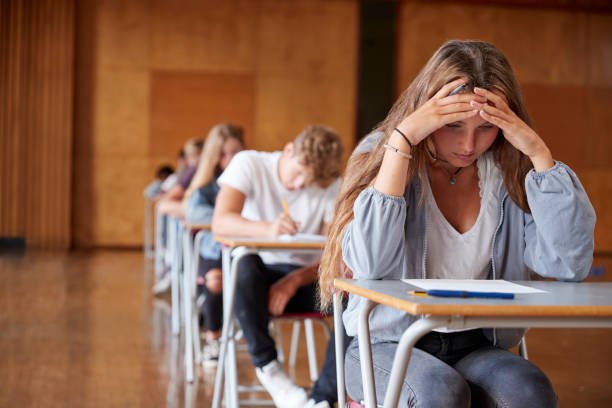
Is it Useful to Force Children to Read? Beware of Academic Anxiety Making Children’s Grades Worse
School teachers and parents also constantly warn us that we must have a sense of urgency and be careful when preparing for schoolwork. Therefore, most students are afraid of not doing well in exams and failing to meet the expectations of their teachers, and often have problems with studying. Feeling of anxiety.
Does academic anxiety make us more competitive, or does it just add fuel to the fire and make school academic report even worse? If you force children to study, can their grades really improve? Let us take you to explore the impact that academic anxiety may have on children!
Academic anxiety is not helpful for getting good grades
Research shows that academic anxiety is usually defined as feeling nervous, difficult, or afraid, and this negative emotion is likely to affect students’ academic performance. For example, students with high anxiety about mathematics or science will not study hard because they know they are inadequate, but will avoid studying mathematics or science even more.
Research in the United States points out that students with high anxiety about mathematics try not to take mathematics-related courses in high school and college. Even if they finally take classes, their academic performance is poor.

Academic anxiety affects confidence and employment choices
Research in India also points out that the higher the academic anxiety, the lower the performance, and vice versa. Although moderate academic anxiety helps students maintain good learning motivation and is crucial for high scores, high academic anxiety can hinder students’ academic performance because anxiety will affect students’ mental processes when studying (Mental process), which is also the so-called process of “thinking about how to solve problems”.
Academic anxiety will have a long-lasting negative impact, reducing students’ learning ability, learning confidence, learning motivation, and even affecting the direction of future employment choices. Students with high levels of math anxiety also have a reduced desire to engage in math-related work.
Moderate relaxation to balance academic anxiety
Finally, I would like to remind you that the “test anxiety” displayed by many students before tests and assessments in various subjects is a normal phenomenon and has almost nothing to do with the quality of their academic performance. What parents and teachers should pay attention to is students’ anxiety about specific subjects.
Achievements are too important to modern society, which is based on future employment or profession. An anecdote went viral on the Internet a while ago, describing a junior high school boy who was forced by his father to go to the streets and hand out 500 flyers to passers-by because he failed to get into a famous high school, announcing that he had failed. Although the content of this online forum article has not been confirmed to be true or false, it sounds like everyone is feeling sad and understands that the pressure to enter a higher education is the source of learning anxiety.
It is impossible for us to erase the feeling of parents who hope that their sons will succeed and their daughters will succeed. However, when children have difficulties with academic anxiety, they cannot take it easy and wishfully think that anxiety will improve their children’s performance. In fact, this will only have the opposite effect and make children avoid it even more. In a performance-oriented educational environment, we all need to strike a balance between “working hard and working smart”.













